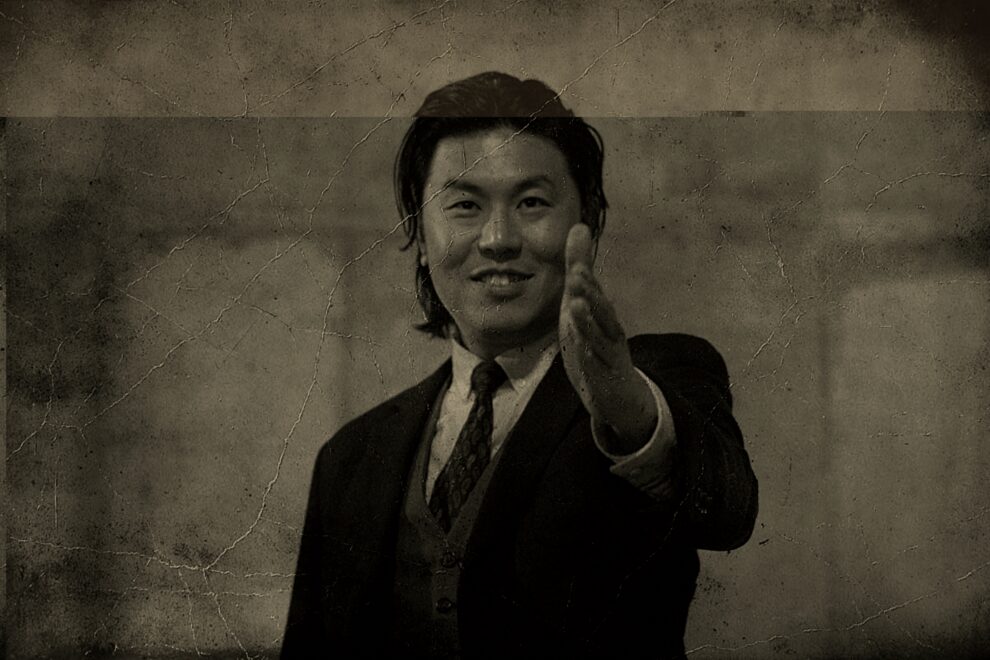As “Super Nova” eloquently expressed, Baek Seung-kee is definitely an unusual director with his episodic filmmaking moving into many directions, usually with a sense of (self) parodying humor. His approach finds its apogee in “Jango: Uncharged”
“Jango: Uncharged” is screening at Bucheon International Fantastic Film Festival

As flashbacks throughout the movie show, Jango is a poor man who wants to be a director, but is stuck in doing delivery work with his sister Juju, who wants to be a movie star. Jango saves money in order to make a movie but eventually has to give a lot of money to his sister, in order for her to join a famous entertainment agency. As his debt increases, he finds himself enslaved and about to move into a slave camp. That is when Dr Salt appears and buys him out while riding in a horse that is obviously a man dressed in a horse costume. The two proceed on killing a number of people who have wronged others (or not), while eventually they meet the people of “Django Unchained” including the despicable producer of the movie Leonardo BitCaprio (definitely a reference on bitcoin), who proves the most formidable opponent. Ah, most of them also speak English throughout the movie, which the subtitles mistranslate constantly (probably on purpose).
Check also this article
Evidently, the overall narrative here is absurd, with Baek Seung-hee parodying both the Tarantino movie and all those meta films-about-films that seem to have become kind of a trend lately. Also evidently, the film is rather low-budgeted (the director is also the scriptwriter, DP and editor), in a way, though, that Baek manages to present as if done on purpose, for the most part at least, as there are scenes that look as if they belonged to bigger budgeted movies. The Western-like finale is a prominent example of this tendency, as is the montage of the killing of a number of people (merchants, teachers, students, athletes etc) which also feature a rather appealing music track and the frequent changes from black-and-white to color sequences. The aforementioned horse in an indication as are the really bad English spewed throughout also move into the same direction even if on the opposite, low-budget this time, fashion.
The comments presented, most of which revolve around the movie industry and frequently contain the director himself, are also interesting, with the despicability of the producer who holds actors captives probably being an accusation towards various talent agencies and how they treat their customers (although this is actually a concept more usually met in Japan). That the dreams of poor filmmakers who want to follow non-generic approaches to filmmaking are often shattered by the reality of the industry is also commented upon, again in an ironic, self-deprecating fashion.
And although the collage of all the aforementioned is intriguing, funny and intelligent, watching this narrative for almost two hours, particularly while listening to the constantly bad English, becomes quite tedious after a fashion, to the point that following the movie borders on the impossible. As such, and although any viewer and particularly film buffs will find a number of individual elements and scenes that will make them laugh, as a whole, “Jango: Uncharged” definitely does not make sense, not at this duration at least.















